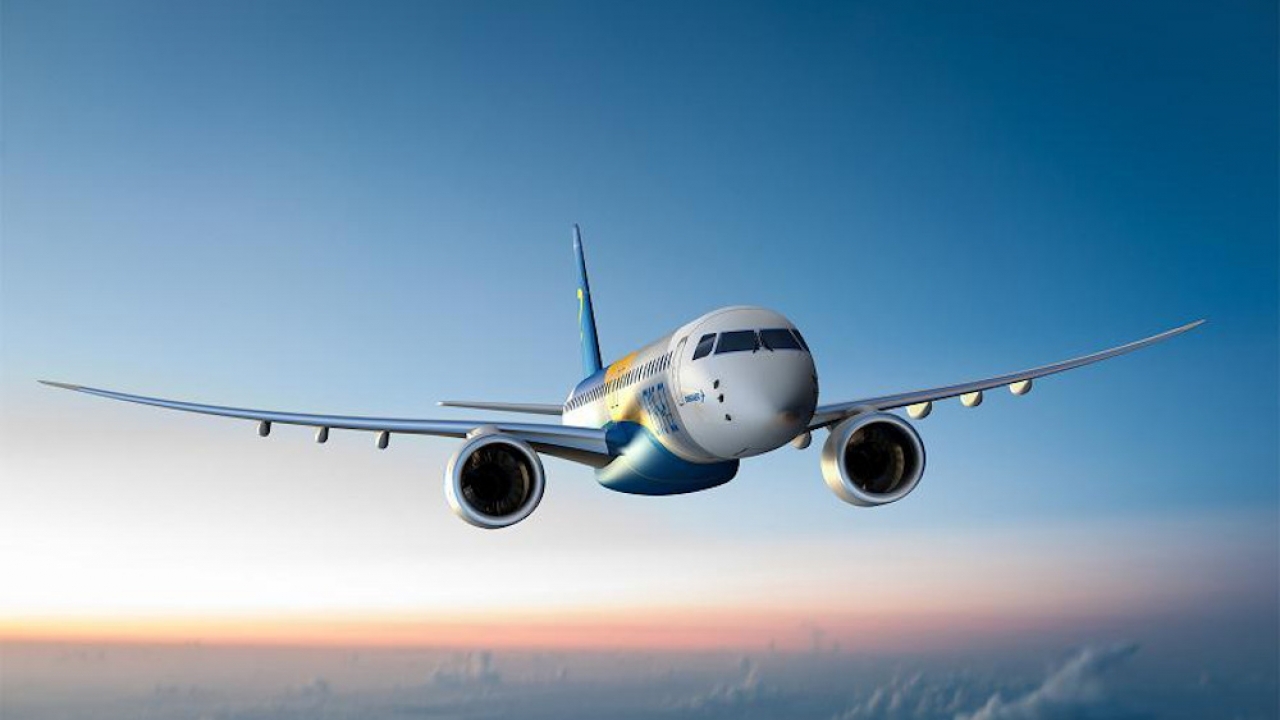Boeing reports first-quarter results

Boeing generated operating cash flow of $2.8 billion and paid $1.2 billion of dividends.
The previously issued 2019 financial guidance does not reflect 737 MAX impacts. Due to the uncertainty of the timing and conditions surrounding return to service of the 737 MAX fleet, new guidance will be issued at a future date. Boeing is making steady progress on the path to final certification for a software update for the 737 MAX, with over 135 test and production flights of the software update complete. The company continues to work closely with global regulators and our airline partners to comprehensively test the software and finalize a robust package of training and educational resources.
"Across the company, we are focused on safety, returning the 737 MAX to service, and earning and re-earning the trust and confidence of customers, regulators and the flying public," said Boeing chairman, president and chief executive officer Dennis Muilenburg.
"As we work through this challenging time for our customers, stakeholders and the company, our attention remains on driving excellence in quality and performance and running a healthy sustained growth business built on strong, long-term fundamentals."
The quarter's operating performance was highlighted by key defence wins, strong commercial widebody performance and orders, continued robust services growth, and receiving Embraer shareholder approval for the proposed strategic partnership.
Operating cash flow was $2.8 billion in the quarter, primarily reflecting lower 737 deliveries as well as timing of receipts and expenditures. During the quarter, the company paid $1.2 billion in dividends, reflecting a 20 percent increase in dividends per share compared to the same period of the prior year. The company repurchased 6.1 million shares for $2.3 billion in the quarter, all of which occurred prior to mid-March.
Cash and investments in marketable securities totalled $7.7 billion, compared to $8.6 billion at the beginning of the quarter. Debt was $14.7 billion, up from $13.8 billion at the beginning of the quarter primarily due to the issuance of new debt.
Total company backlog at quarter-end remained robust at $487 billion.
Commercial Airplanes first-quarter revenue was $11.8 billion reflecting lower 737 deliveries partially offset by favourable mix. First-quarter operating margin was 9.9 percent reflecting lower 737 deliveries partially offset by a higher margin on the 787 programme. The reported margin also reflects increased costs associated with the recent 737 production rate adjustment.
During the quarter, Commercial Airplanes delivered 149 airplanes and the production rate for the 787 increased to 14 airplanes per month. Commercial Airplanes captured several widebody orders during the quarter, including orders for 18 777X airplanes for British Airways parent company IAG, 20 787 airplanes for Lufthansa, and 10 787 airplanes for Bamboo Airways. The first 777X flight test airplane rolled out of the factory, and the program remains on track for flight testing this year and first delivery in 2020.
Commercial Airplanes backlog remains healthy with over 5,600 airplanes valued at $399 billion.
Defence, Space & Security first-quarter revenue increased to $6.6 billion primarily driven by higher volume across satellites, weapons and surveillance aircraft partially offset by lower C-17 volume. First-quarter operating margin increased to 12.8 percent reflecting a gain on sale of property partially offset by unfavourable mix.
During the quarter, Defence, Space & Security was awarded a multi-year contract for 78 F/A-18 Super Hornets for the U.S. Navy as well as contracts for 5 Extra Large Unmanned Undersea Vehicles for the U.S. Navy, 5 E-7 AEW&C aircraft for the U.K. Royal Air Force, and 19 P-8 Poseidon aircraft for the U.S. Navy, Royal Norwegian Air Force and U.K. Royal Air Force. Key milestones achieved during the quarter included completion of the first Ground-based Midcourse Defence test with two interceptors, successful environmental testing of the Commercial Crew spacecraft, and the first flight of the SB>1 DEFIANT™ helicopter. Defense, Space & Security also delivered the first 7 KC-46 Tankers to the U.S. Air Force.
Defence, Space & Security booked orders valued at $12 billion during the quarter and backlog grew to $67 billion, of which 31% percent represents orders from customers outside the U.S.
Global Services first-quarter revenue increased to $4.6 billion, primarily driven by higher volume across the portfolio including the acquisition of KLX. First-quarter operating margin was 14.1 percent reflecting mix of products and services and less favourable performance.
During the quarter, Global Services was awarded contracts for Performance Based Logistics for V-22 for the U.S. Navy and P-8A training for the U.K. Royal Air Force. Global Services captured an order for 10 737-800 converted freighters for GECAS, secured an agreement to optimise crew operations for Royal Air Maroc, and expanded global distribution of hardware and chemical products to Joramco. In addition, Global Services completed the acquisition of ForeFlight, a leading provider of innovative mobile and web-based aviation applications.
At quarter-end, Boeing Capital's net portfolio balance was $2.5 billion. Revenue in other unallocated items and eliminations decreased primarily due to the timing of eliminations for intercompany aircraft deliveries. The change in earnings from other unallocated items and eliminations is primarily due to a customer financing impairment, higher deferred compensation expense and increased enterprise research and development investment. The effective tax rate for the first quarter decreased from the same period in the prior year primarily due to a higher foreign-derived intangible income benefit and higher excess tax benefits related to share-based payments.
Outlook
The previously issued 2019 financial guidance does not reflect 737 MAX impacts. Due to the uncertainty of the timing and conditions surrounding return to service of the 737 MAX fleet, new guidance will be issued at a future date.
Stay up to date
Subscribe to the free Times Aerospace newsletter and receive the latest content every week. We'll never share your email address.

